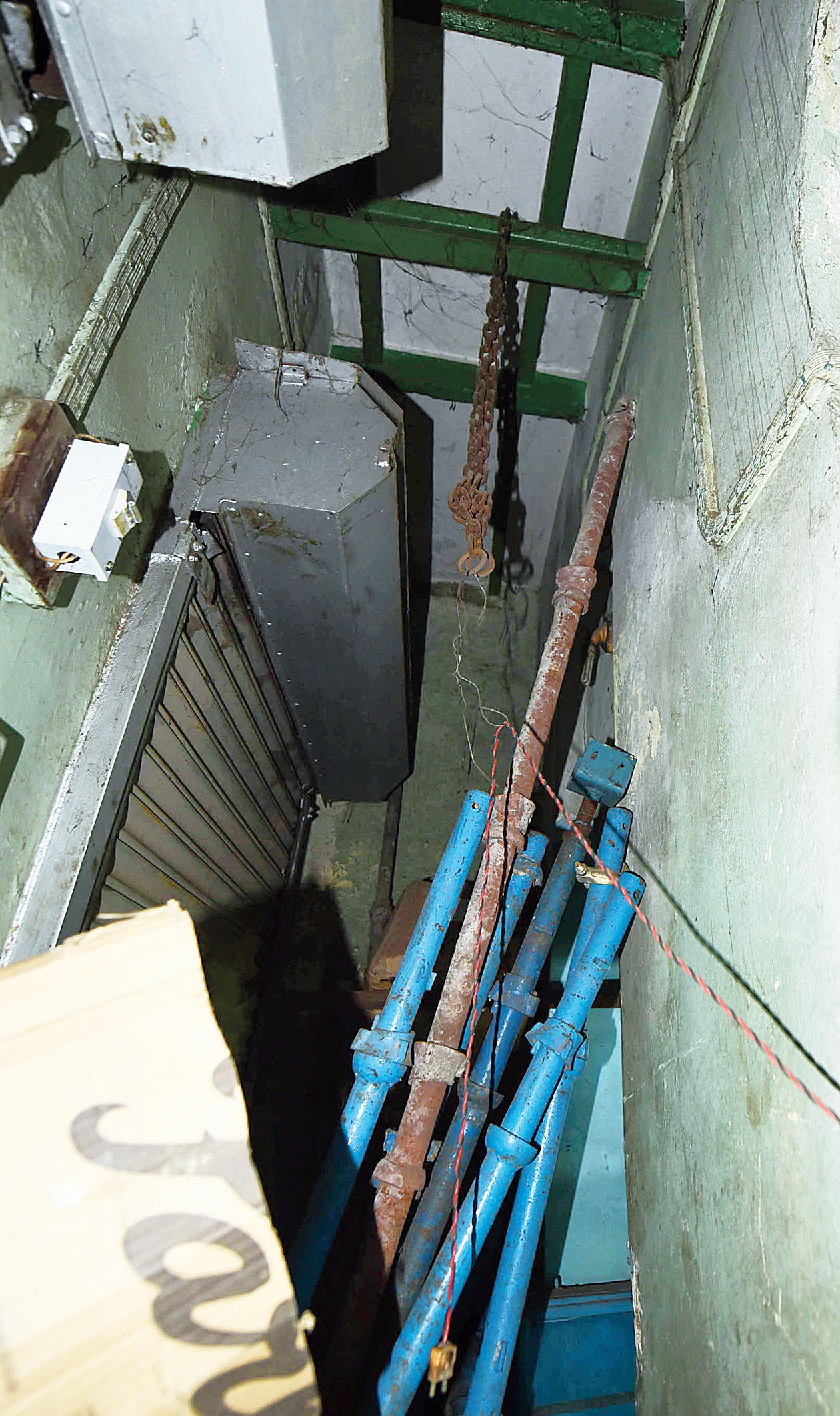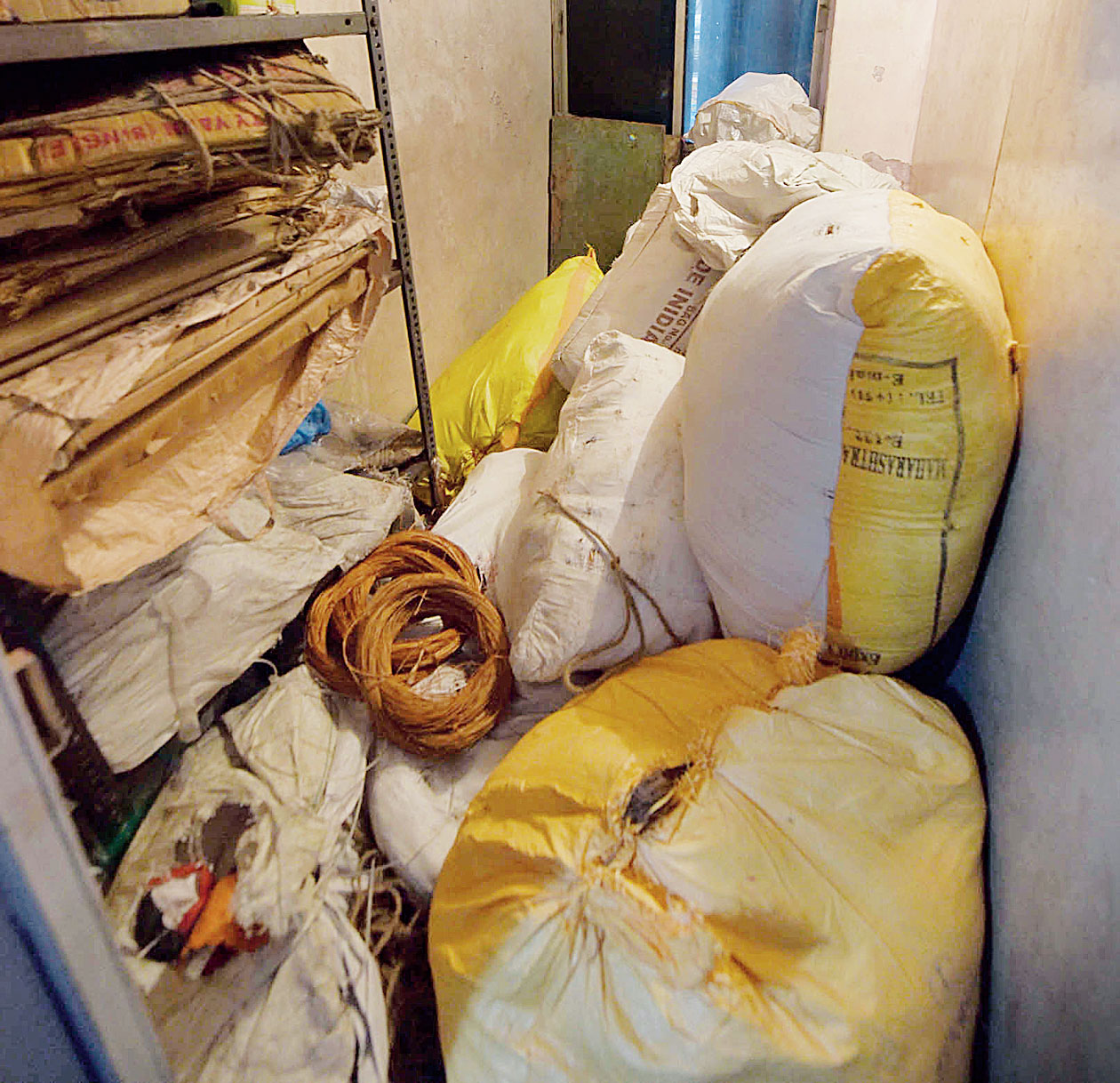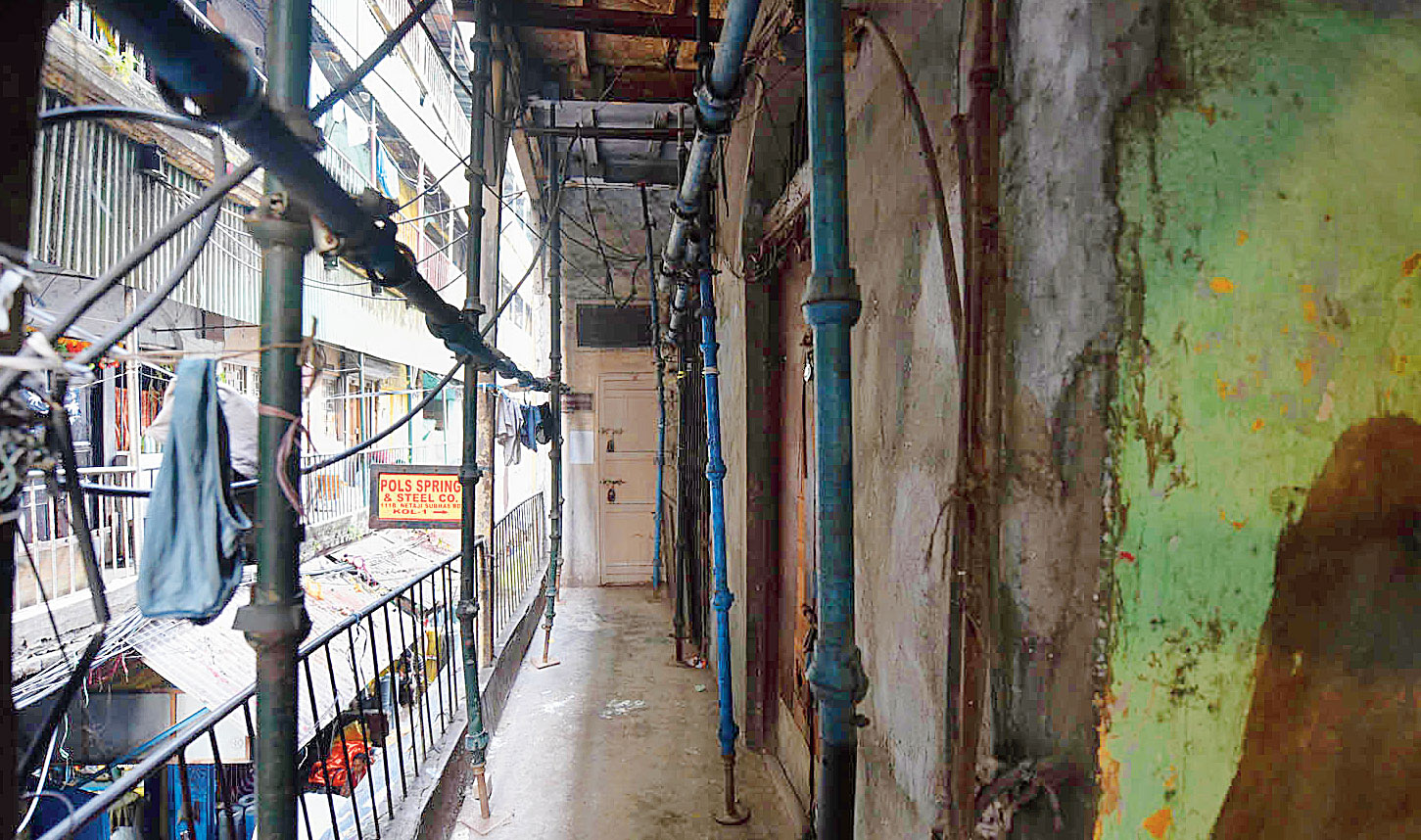Observations made during a survey of 130-odd buildings in the central business district before two Metro tunnels were dug through Brabourne Road last year appear to mirror why a disaster like Bagree Market is just a spark or a jolt away.
Terms like “very poor condition”, “spilling of concrete”, “cracks”, “damp patches” and “damaged walls” pepper the survey reports, although the tunnel-boring operation was completed without any collateral damage.
Steel props and grouting had been used to bolster the weaker buildings along Brabourne Road before the tunnel-boring machines passed underneath them. According to engineers involved in the construction of the East-West Metro, several of these buildings remain unstable.
“If the steel props are taken out, these buildings could collapse. Some of them still have chunks of concrete coming off occasionally. The cracks in the walls haven’t been sealed either,” an engineer said.
Chief minister Mamata Banerjee has asked the mayor of Calcutta to tell the occupants of old and hazardous buildings to take remedial action or let the government do so.
“I have clearly told the mayor to tell them that they should either do the work or let the government do it.… Whenever there is an incident, the government has to bear the blame,” Mamata had told reporters in Frankfurt on Tuesday.
The chief minister, who is visiting Germany to market Bengal as an investment destination, said she was speaking in general rather than only about Bagree Market, where a blaze that started early on Sunday destroyed more than half of the shops spread across six floors.
“It is not only about Bagree Market but all hazardous buildings,” Mamata said.
On Wednesday, engineers who had surveyed the condition of buildings from the Strand Road-Brabourne Road crossing till Esplanade said little had changed in the past year.
The survey commissioned by the infrastructure company Afcons covered 130-odd buildings along a 3km stretch through which the East-West Metro line passes. As many as 32 of these buildings were identified as being in “a very poor condition”.

Steel props that were used to support the roof stacked in a corner of a multi-storey building on Brabourne Road Sanjoy Chattopadhyaya

Goods piled up in a room of the building. Sanjoy Chattopadhyaya
According to a trader, the owner of the building had ignored requests to carry out repairs. “The owner is not agreeing to our demands. Now he does not even take calls. We have appointed a lawyer and will take legal action soon,” he said.
Afcons officials said the buildings from which the props had been removed by the company were those that no longer needed them. “We have reinforced the foundation with grouting. Wherever there was damage to the structure, we had that repaired,” the Afcons engineer said.
The cost of repairs was borne by the implementing agency for the East-West Metro.
The engineer said some of the traders had refused to open their rooms for inspection when the survey was being conducted over six months last year. “We didn’t know the actual condition of the buildings. Later, when the police forced them to open the rooms, we were shocked to see even floors caving in.”
A Calcutta Municipal Corporation (CMC) engineer had told this paper on Tuesday that several hazardous structures were beyond the scope of repair and would need to be pulled down and rebuilt.
Calcutta has around 2,900 buildings classified as “dangerous” (those that can be repaired) and around 100 that are “condemned” (beyond repair).
All these buildings did not have a fitness certificate from the Calcutta Municipal Corporation, the survey revealed.
The dilapidated buildings were divided into two categories: A and B. Those in category A were evacuated and the occupants told that the buildings might even need to be pulled down for safety reasons.
Buildings in category B were reinforced but not evacuated.
The reinforcement protocol included grouting, which involves injecting a mixture of water, cement and sand into gaps in the concrete base of a structure for a firmer footing. Vertical steel props were used as scaffolds for the interiors.
In at least two buildings, one on Brabourne Road and another near Esplanade, the props are still there.
“We have asked the occupants not to take the props out, otherwise the buildings might collapse,” an Afcons official said.
Metro visited one of the buildings on Brabourne Road and found that some of the props had been removed to create space for commercial use. “We have to run our business,” said an employee of a trading firm.
Small rooms were back to being used as storage space for plastic, electrical and other inflammable goods. None of the floors had firefighting equipment.











